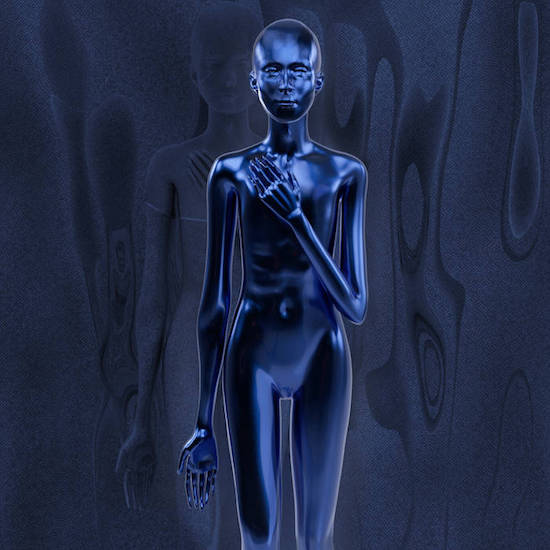Six Archetypes, Danish artist Soho Rezanejad’s debut record, is a chimerical feat. Essentially a lysergic pop album, the 14 songs here are an esoteric clarion call of confidence and freedom that touches on Jungian psychology (the six archetypes all bear song titles here). It is an album of calm amid the storm, fury held in check. It rattles the cages of protest, it calls for change. And ultimately, it transfixes and transcends.
Rezanejad’s vocals – a heady mix of Nico’s monotone croon, the booming and unexpected inner strength of Zola Jesus and the idiosyncratic dexterity of Kate Bush – lends an resonance that is perfectly in sync with the electronic soundscapes and silences that form the bedrock of her music. Opener ‘Pilot: The Guardian’ highlights this, with vocals ebbing and flowing over undulating synth lines. She can hold brittle menace as the post-punk brood of ‘Reptile’ attests (“I wore a cruel smile stepping through knives”), she can sway in the dark, a new-wave oracle espousing anguish and fierceness in equal measure (the jaw-dropping ‘Greed Wears A Disarming Face’).
The digitised speech that informs ‘Actor’s Monologue’ plays like a more mature yet no less powerful mirror to Pissed Jeans’ ‘I’m A Man’ from last year’s Why Love Now, both abhorring and railing against the gender bias; the rage here isn’t gussied up in hyperbole and irony but made icy by the mechanised vocals blanching fury into cold monotone. The result is like an ultimatum found floating in space, the only relic left of a destroyed planet, its very existence warning others not to make the same mistake.
There are moments when the obscure operatic nature of Rezanejad’s art comes to the fore. ‘Voices In Archetypes: The Seekers’ is a choral acrobatics routine, rising by scale and intensity over archaic strings, ending with muted applause as if from shadowy theatre boxes in a parallel world’s dead-of-winter Vienna. This bends back on itself later in the album with the plaintive soar of sub-minute ‘Climbing On The Back Of The Impulsive Child’. A couple of tracks – ‘The Idealist’ and ‘The Prostitute’ in particular – feel lightweight in comparison to the emotional heft that permeates the rest of this record. But every song here is intricate, analytical, cerebral – each one a different world, a different voice. The overall pervasive measure here is one of psychological complexity, of emancipation against archaic oppression, of standing with the collective whole, of being at one with the self.
Rezanejad saves her strongest effort for her swansong, ‘Elegie’. The lyrics are in Farsi – she is singing the Iranian national anthem as recognised by the National Council of Resistance of Iran, and as condemned by Iran’s government – and the power is underscored by the composition. The sparseness and reverberation lends Rezanejad’s vocals an otherworldly power, reminiscent of Jónsi’s powerful grandiosity in Sigur Rós, although here we aren’t in a fictitious land of reckoning but one that’s all too real.
The juxtaposition on Six Archetypes – heat, passion and protest underscored by synthetic sterility – is the kind of lightning-in-a-bottle achievement that can’t be construed or explained. This album alters and changes with every listen, the focus of obsession is never tethered. It is moving, intoxicating, entrancing, truly beautiful.


